Political party manifestos: mere words on paper?
All three mainstream parties in the country have made numerous promises
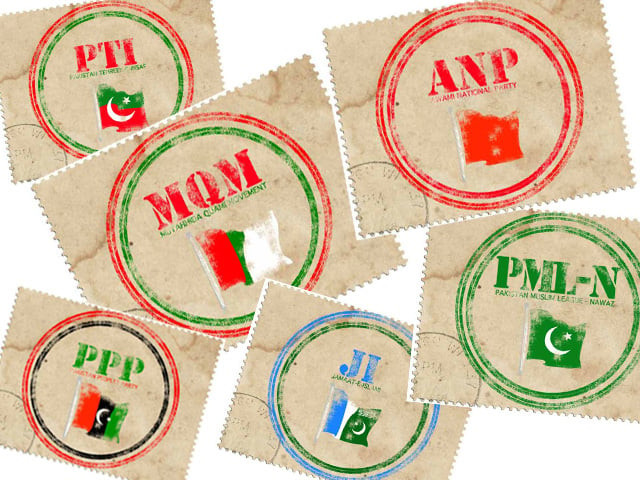
Prior to every general election, political parties come out with a manifesto, a document which is meant to inform the populace about the parties’ aims and policies, for when they are in power; however, once in power, the objectives laid down in the manifesto become just mere words on paper.
Whether it is the Pakistan People’s Party (PPP), which formed a government in the centre in 2008, the Pakistan Muslim League Nawaz (PML-N), which formed the federal government in 2013, or the Pakistan Tehreek-e-Insaf, which came to power in 2018, all three made various promises through their respective manifestos prior to being elected; and all three failed to fulfil those promises.
Be that as it may, manifestos are still useful to evaluate the performance of a party when in power and see if they can walk the talk, as per Chairman of the Political Science Department of the Punjab University, Dr Erum Khalid. “Unfortunately in Pakistan, the politics of emotions and personalities reigns supreme, therefore manifestos do not hold much value,” opined Dr Khalid.
Since political parties realise that the politics of personalities sells, they engage or invigorate their respective vote banks through emotional slogans or mudslinging in rallies, or social media, as of late, elaborated the Chairman of the Political Science Department.
“One can gauge the importance of manifestos in the country by the time they are released. In developed democratic countries, manifestos are released months in advance to garner attention. Whereas, in Pakistan, manifestos come out a few weeks prior to the election,” she added.
Dr Kahlid’s observations are not far from the truth for Shahnaz Akhtar, a resident of Karachi. “The PPP’s manifesto has always been roti, kapra, makaan, but until and unless they announce a strategy to implement this basic manifesto, it is just words on paper, or rather empty promises.” Akhtar, who is a housewife, further criticised that recently the Chairman of the PPP, Bilawal Bhutto Zardari, presented a 10-point agenda to get the country out of its myriad of crises but did not give a plan regarding where the financial resources to implement the agenda would come from.
Adding upon Akhtar’s criticism, Naseer Memon, a political analyst, who has a keen eye on Sindh’s politics, said that despite the PPP having ruling Sindh for a considerable amount of time, there was no significant progress in agriculture and rural living standards of the province, which was contrary to the party’s manifesto.
Both the other of the three mainstream parties do not fare any better in the eyes of the public vis-a-vis manifesto promises. For instance, Muhammad Aslam, a retired principal of a public school, had a bone to pick with the PML-N. “The PML-N both from 2013 to 2018 and during its stint in power after 2022, promised investment in the infrastructure and energy sectors but only focused its attention on Punjab,” said Aslam.
“Now, the PML-N is vying for power again but has not given any plan on how it will address inflation and unemployment. How will the party fulfil any of the promises it makes?” the long-time educationist questioned.
Dr Samar Sultana, a professor in the Political Science Department of the University of Karachi, finds wisdom in Aslam’s question. “People have been crushed by the economic downturn and if the PML-N wants to be in power, it needs to give a roadmap on how it will turn the economy around. We have already seen the party come into power in the centre and did not implement its manifesto,” the professor said.
Similarly, Umair Farooqi, a shopkeeper, raised concerns about the PTI’s broken promises, while talking to the Express Tribune. “The federal government led by PTI did not take any substantial steps to solve the problems of the country, contrary to what it had promised. The country suffered economically during the party’s tenure,” he asserted.
Read: Bilawal urges heavy mandate to implement PPP agenda
Farooqi’s assessment resonates with Parvez Khattak, former chief minister of Khyber Pakhtunkhwa (K-P), who recently left the PTI to form his own political party. The PTI’s manifesto promised an end to corruption and millions of houses but the party was not able to deliver on either of those promises, as per Khattak. “The idea of universal healthcare could not be implemented properly either and the overall condition of the healthcare system faltered during the PTI’s time in power,” remarked Khattak, in a stunning rebuke of his former party.
Despite Khattak’s reservations against the PTI, it is apparent that it is not just the PTI that has failed to deliver on manifesto promises. In this regard, Memon, the political analyst, observed that political parties do not take manifestos seriously because no one keeps a check on whether promises made in the manifesto are being implemented after an election.
However, leaders of the three mainstream parties do not agree with the critique levelled upon them. Senator Taj Haider, a senior leader of the PPP, in a conversation with the Express Tribune, claimed that after assuming power, his party offered more amenities than the manifesto announced in the general elections, especially with regards to the health sector and construction of affordable housing. “Over 0.3 million patients from other provinces have received treatment in Sindh hospitals during the past 5 years and the construction of 320,000 houses in the flood-affected areas of the province has also been completed,” the Senator highlighted.
When pointed out, vis-a-vis the promise of affordable housing, that 2 million houses had been destroyed in the affected areas and even after 18 months many people were still homeless, Haider said that the project started late due to technical problems.
On the other hand, Ahsan Iqbal, the General Secretary of the PML-N, when questioned about his party’s broken promises, vigorously stated: “PML-N is the only party in the country which serves the people as per its manifesto.” Building further on his assertion, Iqbal told the Express Tribune that the party’s manifesto for the upcoming election was to reform the legal justice system, improve the economy, reduce poverty, eliminate corruption, improve the IT and health sectors, and fix the accountability system.
However, Iqbal did not give a timeline on when these promises would be achieved, if at all, if his party were to come into power in February.
Senior leader of the PTI, former provincial minister Taimur Jhagra, defended his party’s manifesto in similar fashion. “If the PTI did not work as per its manifesto then the people of the country, especially the populace of K-P, would not have stood with the party, like it is today,” said Jhagra. While the former provincial minister admitted that no one could deliver 100 per cent, he said that the PTI had revolutionised healthcare, improved education, sports and tourism, all in line with the party’s manifesto. When quizzed about broken manifesto promises like police reforms, small and large dams, and end to corruption, Jhagra stated: “Unfortunately, many of PTI's good governance initiatives were reversed when the caretaker government came in last year.”
Contrary to the political parties’ claims about their performance, fulfilling past promises, and making new assurances, Dr Khalid, the Chairman of the Political Science Department at the Punjab University, was of the view that the PML-N, PPP, and PTI did not implement manifesto promises they had announced in the past. “This goes to show that all three mainstream parties do not actually care about the people, their only preference is being in power,” she contended while talking to the Express Tribune.

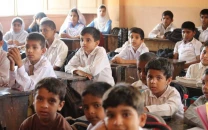
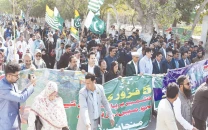
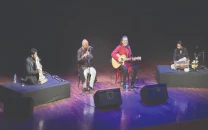

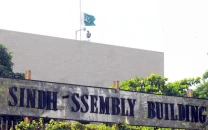













COMMENTS
Comments are moderated and generally will be posted if they are on-topic and not abusive.
For more information, please see our Comments FAQ